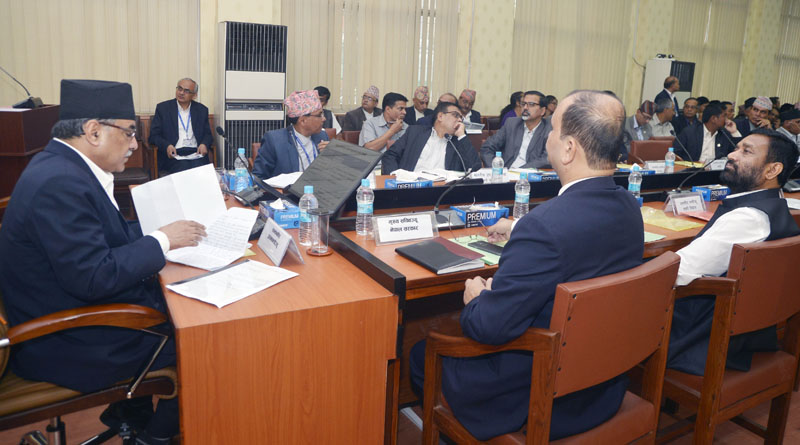Main contractor to be held liable for timely implementation of projects: NDAC
Kathmandu, September 12
The government today instructed the chiefs of development projects to terminate their contracts if the main contractor is not working in the field.
As delay in project implementation is often cited as the major cause for cost variation, the government will from now onwards hold the main contractor liable for timely completion of the projects. This means the government will no longer entertain the reason of delay as being caused by sub-contractors engaged in completing various layers of the project.
The meeting of the National Development Action Committee (NDAC) chaired by Prime Minister Pushpa Kamal Dahal has asked the project chiefs to terminate the contract if the main contracting party introduces various layers of sub-contracts in the field level works. To promote the carrot and stick policy in implementation of the projects, the prime minister-led committee meeting has also decided to reward the best performer and punish the low performers.
The meeting also directed the ministers and secretaries of the concerned ministries to sign the performance contract with the heads of the departments, chiefs of the top priority (P1) projects and management heads of the state-owned enterprises to ensure timely delivery of development works and services.
The meeting also decided that the concerned ministries will monitor the progress of the development projects running under their ministry and ensure the quality of works and timely implementation. The Office of the Prime Minister and Council of Ministers will oversee the monitoring activities of the ministries.
Speaking during the meeting today, Prime Minister Dahal said that the government has targeted to spend over 80 per cent of the capital budget by making the implementation mechanism more robust, while monitoring is also being taken as an integral part of budget implementation.
The 37th meeting of NDAC held today decided that seven members of National Planning Commission (NPC) — the apex planning body — would be assigned for the monitoring of the projects in each proposed provinces. Monitoring will be included as an integral part of the project while formulating plans and the monitoring units of the ministries will be strengthened.
Similarly, the meeting also decided on timely disclosure of monitoring and evaluation reports and also its submission in the Parliament for discussion.
To expedite the reconstruction process, the Ministry of Finance has been asked to sign agreements with development partners to mobilise the committed funds through the government’s budget and the ministries responsible for effective and efficient implementation of post-earthquake reconstruction projects. The meeting has also approved signing multi-annual contracts in the case of infrastructure projects (under post-earthquake reconstruction drive). The meeting also decided to refurbish the institutional capacity and organisational structure of the National Reconstruction Authority.
The meeting also instructed Ministry of Energy to settle issues of land compensation, resettlement of locals of Budhigandaki project sites within two months and also allowed it to settle issue of land compensation, among others, of Thankot- Chapagaun 132 KV transmission line project by taking support from the security agencies.






